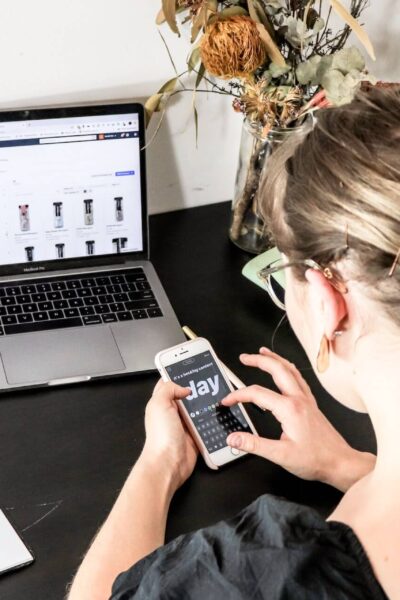With online sports betting now legal in 26 US states, up from 18 in January 2022, many online news publishers are embracing potentially lucrative content partnership deals with sports betting companies.
But in the vast world of media publishing, what do news publishers stand to gain from these partnerships? The short answer is that they can quickly acquire new revenue streams at a time when many are struggling with extremely tight margins. News publishers can also provide readers with added value and enhance reader loyalty by incorporating betting content and predictions into their regular sports coverage.
But how do such partnerships work and what sort of considerations should publishers take into account when assessing potential sports betting affiliate partners?
The Rise of Online Sports Betting
Ever since the first legal online wagers were placed in New Jersey in May 2018, other states have quickly followed suit by legalizing online sports betting.
More than $80 billion was legally wagered on sports in 2022 and, according to Macquarie Research, the US sports betting industry is expected to produce $30 billion in revenue from an estimated $400 billion in wagers by 2030.
Part of this growth in sports betting is due to advances in technology, which is light years ahead of where it was just a few years ago, both in user-friendliness and access to accurate live data. This is largely thanks to AI-powered analytics and machine learning models, which allow sports betting companies — and affiliates alike — to generate highly accurate data and insights on betting outcomes.
The ability of AI to crunch data without bias or emotion in the blink of an eye is truly a revolution in sports betting. Users who aren’t regular sports bettors can access and easily understand these betting predictions, which goes a long way in making sports betting more approachable for the average person.
It’s no surprise then that many news publishers are beginning to recognize the affiliate marketing opportunities now available through online sports betting. In July 2021, Gannett signed a five-year partnership with European sportsbook Tipico that is valued at $90 million.
Other examples include DraftKings, a sports betting operator that has signed multi-year partnerships with both Warner Media and Vox Media. DraftKings’ strategy appears to have paid off: in the first game of the 2021 NFL season, more than twice the number of bets were placed on its platform compared to the first game of the previous season. Of course, this was due in part to more American adults having access to sports betting, but it remains a telling statistic, nonetheless.
The general public is also embracing a new enhanced reality. Fans are no longer satisfied with basic news coverage of an upcoming baseball game. Instead, they want live, interactive data that can help them place smarter bets.
For publishers considering getting in on the action, however, it’s extremely important they first assess potential partners before jumping into bed with them.
Assessing Potential Partners
When partnering with a sports betting affiliate, publishers will want to enter a mutually beneficial relationship between themselves and their partner.
In a typical affiliate deal, the affiliate’s role will be to provide betting predictions and contextually relevant content on upcoming games, which the publisher will then share with its audience via its digital platforms. Each time a new customer is referred to a sportsbook from this content, the publisher is paid a referral fee.
That’s the basics of any affiliate partnership, but with so many affiliates to choose from, it’s vital to evaluate each potential partner before signing on the dotted line. With that in mind, here are four things an online news outlet should consider when evaluating a potential partner.
1. Commission Structure
In the US betting market, most partnership deals between publishers and sports betting affiliates are based on the cost per acquisition (CPA) model. This calls for a fixed commission price paid by betting operators for each person who clicks through and places a bet.
On the face of it, this CPA model can seem like a great deal for both parties, but it’s not necessarily a license to print money when dealing with audiences that don’t typically have a high propensity for betting.
For instance, a person may be willing to take advantage of special offers that provide a free first-time bonus bet for new users, but they may be unwilling to place further bets in the future once their initial $10 or $20 deposit has been wagered, which is often needed to trigger the bonus in the first place. This is something the sportsbooks monitor very closely.
For this reason, it’s likely that sportsbooks will start to shift their marketing focus over time. Their goal will change from getting the most users possible to securing the most out of each individual user through retention strategies such as rewards systems, in-app messages and loyalty offers.
As such, a better partnership deal might be a revenue-sharing model that is conditional on the value that each user brings to the betting operator. Such a system could be highly beneficial for both parties as it would incentivise the publisher to pass more valuable users through to their sportsbook partners.
2. Reputation
The market for online sports betting is ballooning at an enormous rate, and not every sports betting affiliate will be fully suited to your digital publication.
Make sure you do your research on each individual company and find out what their other partners are saying about them. If you don’t, you could end up in a partnership that doesn’t deliver the type of results you expect.
3. Ask for Proof of Success
The easiest way to gauge the expertise of a betting operator is to ask for proof of success through things such as case studies and testimonials. Most businesses will understand the value of such social proofs and will be happy to provide anything they have.
Another good proof point for choosing an affiliate partner is how good their technology is, how easy or difficult it might be to implement on your platform, and how much work will be required at your end to ensure some worthwhile reward for effort.
Serious bettors will take time to compare various offerings and see which one provides the best combination of trustworthy content and strong user experience. A publisher should do the same when considering an affiliate partner.
4. Due Diligence
Before signing anything, take plenty of time to read and understand the terms and conditions of an affiliate partnership program.
While these are usually very straightforward arrangements, it is a good idea to seek consultation from a business attorney who has experience with these types of deals. In short, do your due diligence before signing any affiliate partnership agreement.
Final Thoughts
The market for online betting is becoming increasingly crowded, so it’s more important now than ever to carefully select a partner that will be a good fit for your publication.
As the US betting market continues to grow and mature, publishers will get a better feel for how they can enter the sports betting game, which, at its heart, is all about putting out great sports content combined with accurate live betting data.
Disclaimer: The views, opinions and ideas expressed in this post belong to the author/s and do not necessarily reflect those held by State of Digital Publishing.











